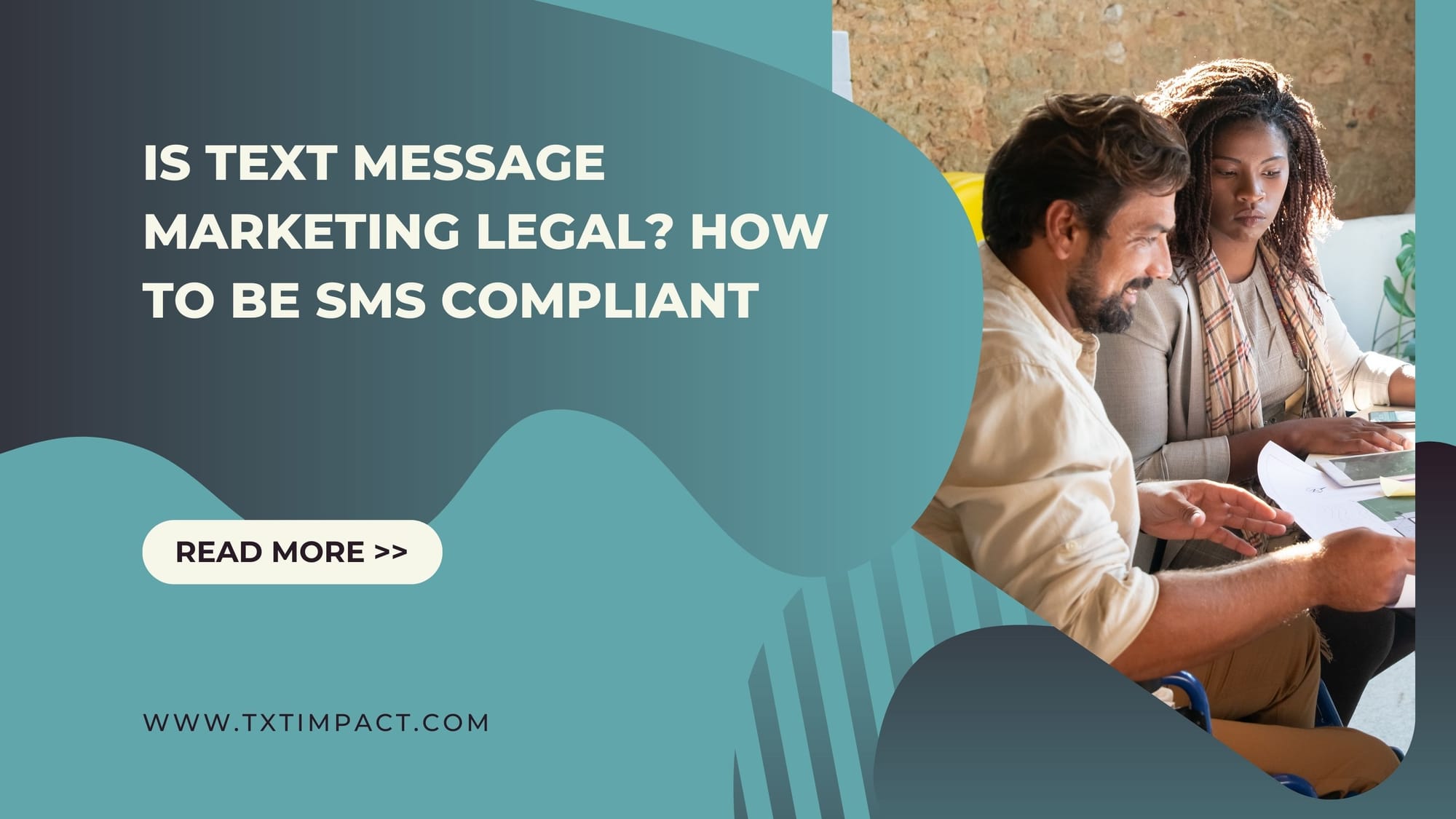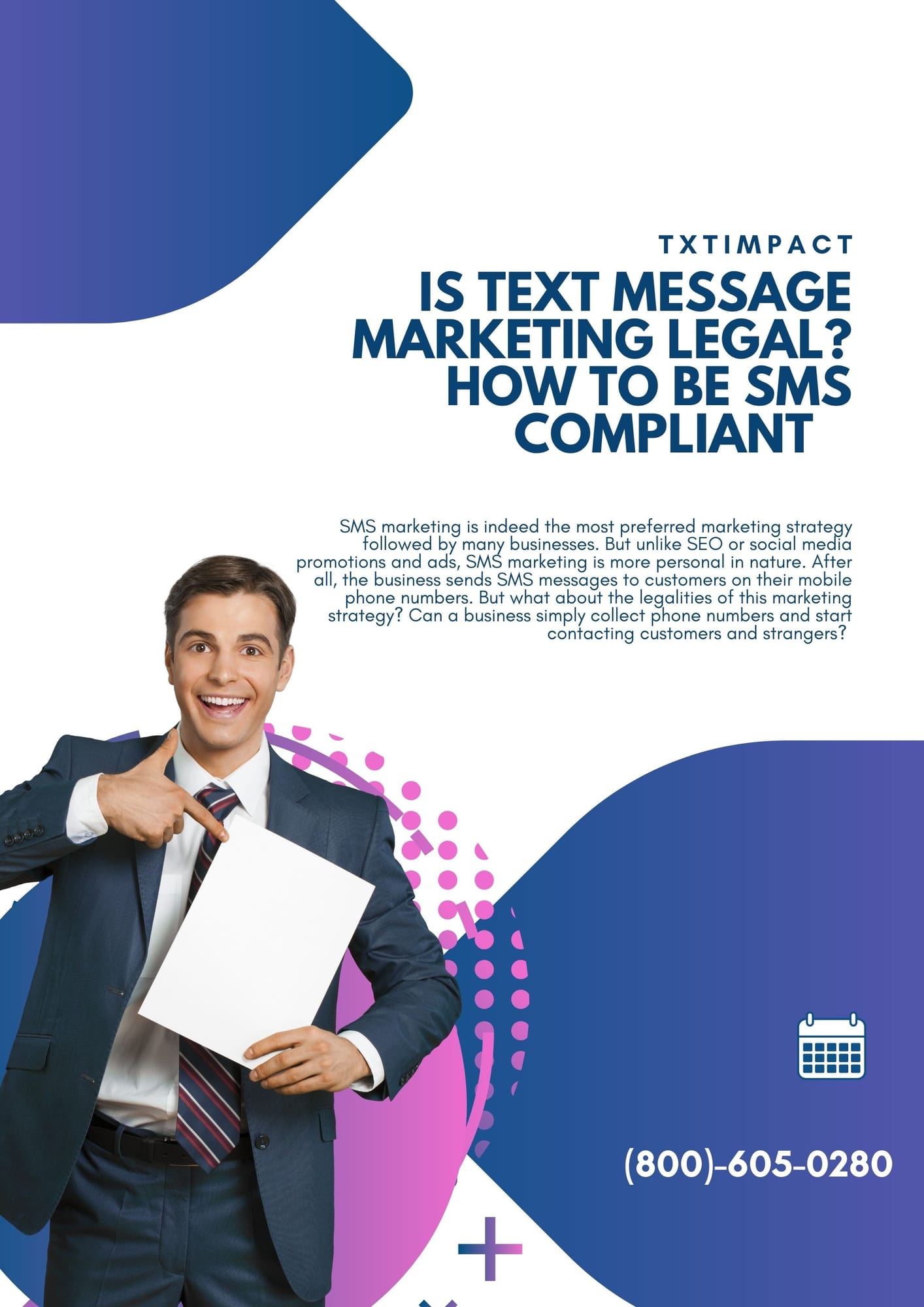SMS Marketing is indeed the most preferred marketing strategy followed by many businesses. But unlike SEO or social media promotions and ads, SMS marketing is more personal in nature. After all, the business sends SMS messages to customers on their mobile phone numbers. But what about the legalities of this marketing strategy? Can a business simply collect phone numbers and start contacting customers and strangers?
What should a brand do to be SMS compliant and not break the laws/ regulations set by TPCA (Telephone Consumer Protection Act) and CTIA (Cellular Telecommunications Industry Association)? Let’s find out in this blog.
What You Need to Know About SMS Compliance
User consent is a must for SMS marketing. There are no two ways about it. For example, a group of customers filed a lawsuit against Papa John in 2012 for sending unsolicited messages.
So you need to know about SMS compliance and ways to get user consent before you plan SMS campaigns and send messages to contacts on your database. People don’t like getting messages from a business without consent.
● Written Consent
TPCA emphasizes getting written consent from users before sending them business messages. Furthermore, the written consent has to be clear and understandable so that the user knows what they’ve signed up for. It cannot be a part of T&C.
That’s why many brands create a shortcode to add contacts to the database. People who want to receive updates from the business will have to send the shortcode as a message to the business’ phone number. Another way to get user consent is by asking the person to fill up and submit a form (online or paper) exclusively for this purpose.
● Import Contacts with Permission
Remember that consent applies to everyone. Customers already on your list are also included. You cannot import contacts without permission and send them messages just because you have their contact details. You need to ask for their consent through email, phone calls, or other means before sending SMS marketing messages.
The business texting software provider will review the imported contacts when setting up the automated system. However, the responsibility lies with the business to ensure that it has customer consent.
● Call-to-Action Specifications
The rule of consent applies to CTAs as well. You should explicitly state that subscribing to SMS updates is not a condition/ acceptance to become a buyer. People can receive SMS from your business and still not buy anything from you.
Details like the frequency of the messages (how and when you plan to send them), types of messages, the messaging rates (carrier charges may be applicable when people respond to your messages if they don’t have any active SMS plans), etc., should be provided to the users when asking for their consent.
● Opt-in Confirmation
An opt-in confirmation message is mandatory. The first message you send a customer after they provide their consent should be a confirmation of the same. You should identify your business by providing information like the brand name, a disclaimer about data charges being applicable, and ways the user can opt out of the subscription if they want to. Business texting software automates this step by customizing the text.
● T&C Requirements
The SMS messages should not only include the line ‘T&C apply’ but should also have an active link (URL) that will take the users to the T&C page on your website. Customer care contact information, product descriptions, and clear steps for opting out should be mentioned, along with the terms and conditions.
● Privacy Policy
The privacy policy is another vital aspect to share with your users. Every business has a privacy policy to protect users’ personal and confidential information. Share a link to the privacy policy through CTAs.
● Types of Messages
What types of messages do you intend to send to your customers? Some common message types are:
Conversational: A message sent by the customer to a business belongs to this category. You can respond to this message as the consent is implicit.
Informational/ Transactional: This requires explicit consent from users. The messages could be more about the products/ services or the details of their orders.
Promotional: It requires explicit consent as you intend to add the customer to your marketing campaigns.
● No SHAFT
SHAFT stands for Sex, Hate, Alcohol, Firearms, and Tobacco. Your messages or CTAs shouldn’t be related to any of these topics. Bars need to set up a toll-free number to send updates about happy hours and have customers aged 21 or older.
TXTImpact has been offering affordable and customized business texting solutions in the US since 2006. We have clients from various niches, ranging from hospitality to real estate, governmental, nonprofit, religious, retail, travel, and more. We adhere to the industry guidelines and help businesses be TPCA and CTIA-complaint when using SMS marketing services.


